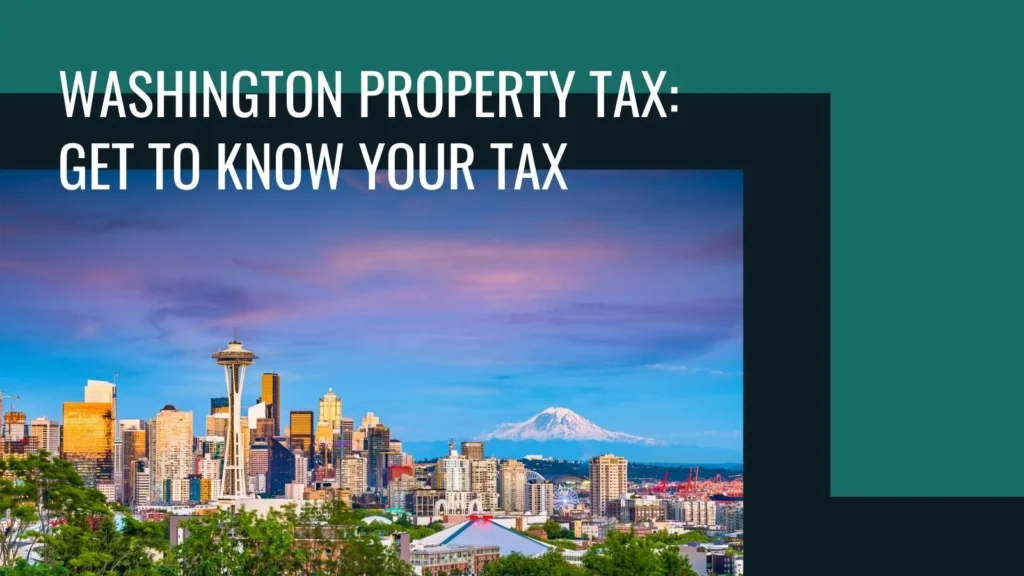Navigating property taxes in Washington State can feel overwhelming, but understanding the basics can make the process much smoother. Let’s break it down into digestible pieces so you can plan better and make informed decisions.
How Property Taxes Work in Washington
Property taxes in Washington fund essential community services like schools, fire protection, and parks. Here’s how they’re calculated:
Assessed Property Value
County assessors determine your property’s value based on market trends and physical inspections (conducted at least once every six years). This ensures fairness and keeps assessments up to date with current conditions.
Tax Rates
Each taxing authority (e.g., county, city) sets rates based on its budget needs. Rates are expressed in dollars per $1,000 of assessed value. For example, if your property is valued at $500,000 and the tax rate is $10 per $1,000, your annual property tax would be $5,000.
Limits on Increases
Washington caps general, non-voter-approved property tax increases at 1% annually or the rate of inflation, whichever is lower. However, new levies for projects like schools or infrastructure are exempt from this cap.
2024 Property Tax Landscape
Here are the most recent updates and insights for Washington homeowners:
- Statewide Average Tax Rate: 0.92% of a property’s assessed value.
- High Property Values, Higher Payments: While rates are relatively low compared to the national average (0.99%), Washington’s high property values result in an average annual payment of $4,061.
- Top Revenue Sources: Taxes fund public education, emergency services, libraries, and parks.
County-by-County Breakdown
Washington’s property taxes vary widely by location. Below are a few examples to give you a sense of what to expect:
Washington Property Tax Rates by County
County Name
Median Home Value: $
Median Annual Property Tax Payment: $
Effective Tax Rate: %
The diversity in rates reflects local priorities and the services funded by taxes in each area.
Key Exemptions and Deferrals
Washington offers several programs to reduce the property tax burden for eligible homeowners:
- Senior Citizens and Disabled Persons: Income-based exemptions or deferrals.
- Homeowners with Limited Income: Deferral programs can help postpone taxes until the property is sold.
- Nonprofit Organizations: Specific exemptions are available for organizations providing affordable housing or public services.
If you believe you might qualify, contact your county assessor’s office for assistance.
Recent Legislative Updates
In 2024, the Washington State Legislature introduced measures to enhance fairness and accessibility:
- SHB 2012: Expanded tax exemptions for nonprofits offering affordable rental housing.
- HB 2044: Standardized rules for voter-approved tax levies.
- SB 6013: Extended exemptions to properties sold for low-income, self-help housing projects.
These changes reflect the state’s ongoing efforts to balance funding needs with homeowner affordability.
Calculating Your Property Taxes
Here’s a simple way to estimate your taxes:
- Find your assessed property value from your county assessor’s office.
- Combine the general tax rate (capped at 1%) with any voter-approved levies.
- Multiply the total rate by your property’s assessed value.
Example:
Assessed Value: $400,000
General Tax Rate: 1%
Voter-Approved Levies: 0.25%
Total Tax Rate: 1.25%
Annual Tax: $400,000 × 1.25% = $5,000
For precise calculations, check online tools or consult your local tax office.
FAQs About Washington Property Taxes
How do rising home values affect taxes?
When property values increase, so does your tax bill, even if rates stay the same. Assessors revalue properties annually to reflect market conditions.
How do Washington’s taxes compare nationally?
With an average effective tax rate of 0.84%, Washington’s rates are below the national average. However, high home prices often mean higher total payments.
What are voter-approved levies?
These are additional taxes passed by local elections to fund specific projects, such as school renovations or emergency services. They are exempt from the 1% cap.
Final Thoughts
Property taxes are a cornerstone of Washington’s public services, from education to parks. Understanding how they work—and how they’re evolving—can help you make better financial decisions and even save money through exemptions or appeals. Staying informed ensures you’re not only compliant but also optimizing your benefits as a homeowner.
Need personalized advice? Don’t hesitate to reach out to a local tax professional.
Website: https://www.xoatax.com/
Phone: +1 (714) 594-6986
Email: [email protected]
Contact Page: https://www.xoatax.com/contact-us/
Disclaimer: This post is for informational purposes only and does not provide legal, tax, or financial advice. Laws, regulations, and tax rates can change often and vary significantly by state and locality. This communication is not intended to be a solicitation, and XOA TAX does not provide legal advice. XOA TAX does not assume any obligation to update or revise the information to reflect changes in laws, regulations, or other factors. For further guidance, refer to IRS Circular 230. Please consult a professional advisor for advice specific to your situation.




 anywhere
anywhere  anytime
anytime